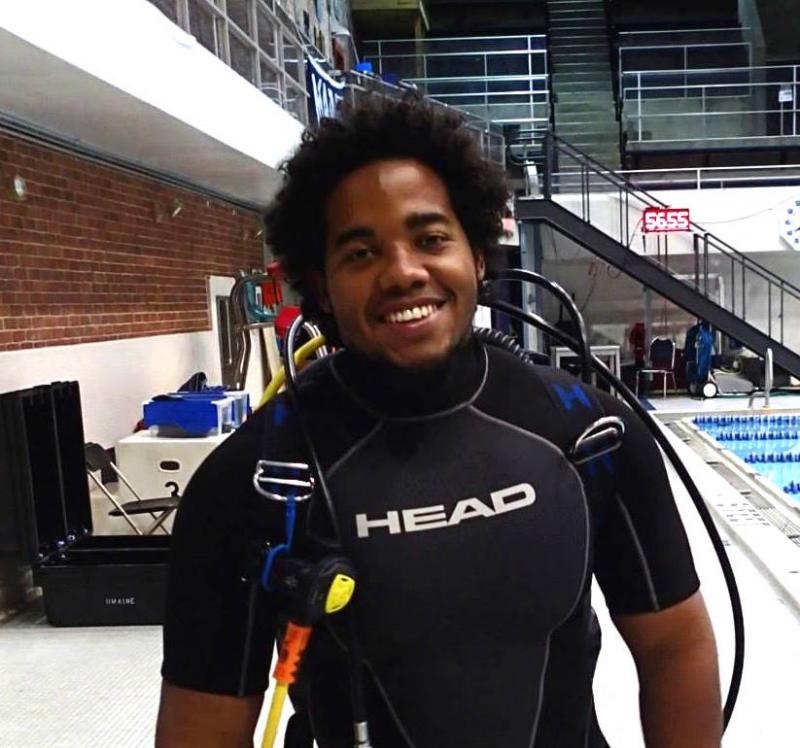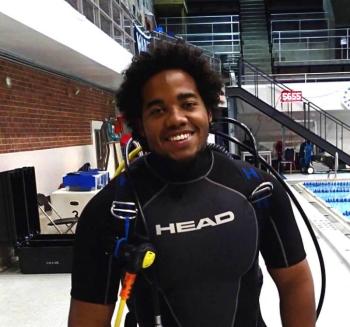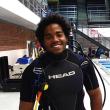Marine science student wins fisheries research award
Ruleo Camacho received a Young Investigator Award at the Ninth Florida State University Mote Symposium in Sarasota, Florida.
The triennial symposium focuses on issues relevant to fisheries. This year’s topic, Territorial Use Rights for Fishers (TURFs), drew about 100 people from all over the world including South Africa, Chile, Australia, India, Canada, the Caribbean, and the U.S.
The issue at hand was to determine if TURFs, which work well in some small-scale fisheries, could be scaled up in order to benefit fishermen and coastal communities in other parts of the world.
Camacho’s thesis research, “Antigua's Community Based No-Take Reserves: Developing a Bottom-Up TURF for Coral Reef Ecosystems,” received rave reviews from the symposium’s international organizing committee.
Camacho’s focus on coral reefs and the community-based TURF system was fueled by past experience. He grew up in Antigua and Barbuda and saw first hand the degradation of coral ecosystem health around the islands due to the effects of overfishing, pollution and natural factors like hurricanes.
Management of these marine ecosystems was virtually nonexistent when Camacho began his work. With guidance from Dr. Bob Steneck and Dr. Teresa Johnson, his advisors at the University of Maine’s School of Marine Sciences, Camacho developed the idea of creating a bottom-up management system to positively influence reef health.
Camacho's work as a community organizer, convincing the fishing community to not fish a reef in the Falmouth region of Antigua, has had unprecedented success on an island where most government imposed initiatives are ignored and not enforced.
Shifting the primary responsibility of resource management to the main stakeholders, the fishermen, was the key to creating the reserve. He actively involved the fishermen in the discussions regarding formation of the reserve, location, improvements and management. The decision to not fish is completely voluntary and there is no external enforcement.
The take home message, says Camacho, is that “community-based management is a viable alternative to current (but failing) top-down management practices in Antigua and Barbuda to positively influence the key drivers needed for the recovery of the islands' coral reef ecosystems.”
Steneck, who also attended the conference, said “Ruleo has every reason to be proud of his award.”
The small reserve he created is a demonstration project for the fishing community in Antigua who are mostly too young to ever have seen a healthy coral reef. It is extremely hard to discuss future options with stakeholders if they have no concept of what the future could look like.
Darling Center director Heather Leslie praised Camacho for his innovative, community-based approach to research, noting “Ruleo’s interdisciplinary approach to marine science and stewardship is exactly what we need to tackle 21st century ocean challenges.”
Based at the University of Maine’s Darling Marine Center in Walpole, Camacho is a pursuing a dual master’s degree in marine biology and marine policy. A Fulbright Foreign Scholarship and a Thurgood Marshall Scholarship have funded his research.
Event Date
Address
United States
























